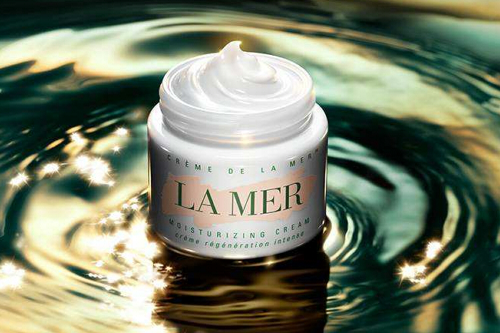Six Precious Substances Worth More Than Their Weight in Gold
六种比等重黄金还贵的东西
And how their value changed over time.
它们的价值如何变迁。
By Ellen Airhart
文/艾伦·埃尔哈特
The saffron[1] war of 1374 lasted 14 weeks driven by a notion that the spice could cure plague. It can’t. But people lost their heads over it. It’s not just gold, diamonds, and oil we cherish and plunder. Seemingly benign[2] commodities – whether it’s medicinal tea or stinky fungus[3] – have exerted power over us for centuries. Here’s just a taste of their recent history.
1374年的藏红花战争持续了14周之久,起因是当时人们认为这种香料可以治愈疫病。其实藏红花并无此疗效,但是人们被冲昏了头脑。我们所钟爱并掠夺的不只是黄金、钻石和石油。看似于人有益的商品,不论是具有药效的茶叶还是散发臭味的真菌,几世纪以来都对我们发挥了影响力。本文仅举近世之例,以飨读者。
[1] saffron 藏花;番红花。
[2] benign 有利的。
[3] fungus 真菌(如蘑菇和霉)。
White truffle
白松露
Italy’s Tanaro river basin produces prized white truffles. In 2016, excess rains yielded bumper[4] crops and sank wholesale prices 30 percent. New cultivation tactics involving careful irrigation[5] and seed selection from known truffle-producing trees could further devalue the fungus. That is, if they can survive blight[6].
意大利的塔纳罗河盆地出产名贵的白松露。2016年,该地区雨量丰沛,白松露大获丰收,将其批发价格压低了30%。新的培育技术包括精细灌溉、从已经产出过松露的树木上选种,可能使其进一步贬值。当然,前提是这些人工培育的松露能够挺过疫病。
[4] bumper 异常大的;丰盛的。
[5] irrigation 灌溉。
[6] blight (农作物等的)疫病。
Saffron
藏红花
The choice between Spanish and Iranian saffron is a matter of opinion. The complexly flavored pistils[7] both come from the laborious harvest of the same tiny purple flowers. Some chefs prefer the Persian variety, but since the La Mancha spice can fetch twice the price, merchants relabel it, which forced the EU to crack down in 2014.
西班牙藏红花与伊朗藏红花,选哪一种?这是一个见仁见智的问题。这两种气味复杂的雌蕊都是从同一种紫色小花上费力采摘下来的。有些厨师偏爱伊朗品种,但是由于拉曼恰品种可卖出两倍的价钱,商人们便将前者改头换面。欧盟不得不在2014年加以整治。
[7] pistil 〈植〉雌蕊。
Beluga caviar
白鲟鱼子酱
The more we clamor for wild beluga caviar from the Caspian Sea, the more local fishermen will kill sturgeon[8] for their eggs, and the scarcer the fish become – driving up prices. In 1998, the Convention on International Trade in Endangered Species tried to halt this cycle by limiting kill quotas, to fairly limited success.
我们越是垂涎里海产的野生白鲟鱼子酱,当地渔民就越是大肆杀鲟取卵,白鲟就变得更加稀少,鱼子酱的价格也一路上涨。1998年,《濒危野生动植物种国际贸易公约》试图通过限制捕杀配额来遏制这种恶性循环,但是收效甚微。
[8] sturgeon 鲟。
Rhino horn
犀牛角
The market for rhino horn, prized in Asia for its mythical medicinal value, peaked around 2012. But widespread education about rhino horn’s actual lack of medicinal value seems to be lowering prices. PSAs[9] showing celebs like Richard Branson biting their finger-nails – made of keratin[10], like horns – probably helped.
在亚洲,犀牛角因其神秘的药用价值而备受青睐。2012年,犀牛角的市场需求达到了顶峰。但是犀牛角实际并无药用价值,这一点已经通过教育普及大众,似乎也正拉低其价格。理查德·布兰森等诸多名人所拍摄的以“啃指甲救犀牛”为主题的公益广告可能发挥了作用。指甲与犀牛角成分相同,都是角蛋白。
[9] PSAs = Public Service Announcements 公益广告。
[10] keratin (发、羽、角、蹄等的)角蛋白。

Crème de la Mer
海蓝之谜面霜
Astrophysicist Max Huber created the Crème in the ’60s to heal his rocket burns. Its luxury status intensified in 2005, when Estée Lauder launched a limited-edition version at invitation-only soirées. Champagne and fresh berries, plus the exclusivity, convinced socialites to pay $2,100 for a three-week supply.
天体物理学家麦克斯·贺伯在上世纪60年代研发了这款面霜,以治愈他因火箭燃料爆炸而灼伤的皮肤。2005年,它的奢侈品地位得到巩固。那一年,雅诗兰黛集团在一场只有凭请柬才能入场的晚会上发布了一款限量版的海蓝之谜面霜。香槟鲜莓,精选特供,引得社会名流纷纷掏2100美元买这款只有3周用量的面霜。
Da Hong Pao Tea
大红袍茶
This tea is said to have healed a 14th-century Ming emperor’s ailing mother. In gratitude, he placed a red robe around the trees, inspiring both the tea’s name (“big red robe”) and its cult status. The still-high price dropped in the 1980s after cultivators found a way to grow new trees from the Wuyi Mountain originals.
据说在14世纪,这种茶曾经治愈了一位明朝皇太后的疾病。皇帝将一件大红袍披到了茶树上,以示感谢。此举让这种茶有了“大红袍”的名字及令人膜拜的地位。20世纪80年代,种茶人找到了从武夷山的原株茶树培育出新茶树的办法,之后大红袍茶的价格下跌。但即便如此,大红袍茶依然价格不菲。
(译者曾获第三届“《英语世界》杯”翻译大赛优秀奖)








